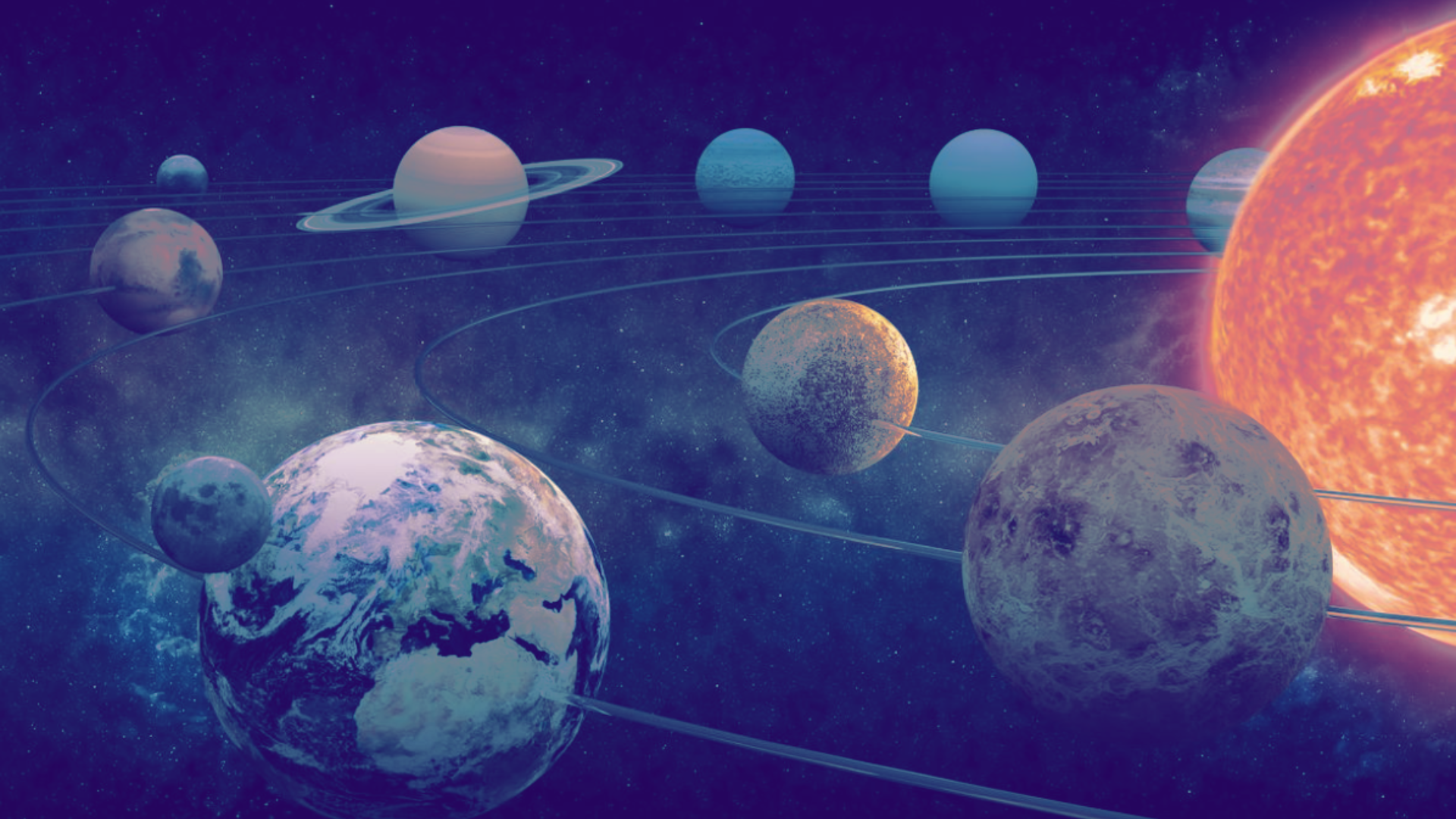
Konstantin Batygin isn’t just another run-of-the-mill, Russian-born, Japan-raised, guitar-shredding Caltech professor of astronomy.
Some see him as the new Carl Sagan of our time, a cutting-edge researcher who both unravels and explains the mysteries of the universe to us all, one icy rock at a time.
He was named by Forbes as one of the most notable 30 Under 30 scientists in America while he was still a 28 year-old assistant professor, and now, at only 38, he’s been featured in multiple television documentaries, including the 2019 NOVA miniseries, The Planets.

PLUTO AND THE BIG LIE
"Pluto’s not a planet. It’s just a piece of crap," Batygin says with a mischievous grin. "Its surface area is about the size of Russia, and it’s smaller than our moon."
Speaking from his sunny balcony in the hills above Los Angeles, Batygin is happy to see Pluto demoted from the pantheon of planets.
“However,” he adds, “geologically, it’s interesting. It has real geology – you can't tell the difference from Colorado. Geology tends to replicate itself at different scales. At a frosty 40 Kelvin [almost -400 °F], Pluto’s carbon monoxide stands in for the glaciers and flow we know on Earth. So very cool and all that... but it's still not a planet.”
Watch Konstantin Batygin at METAL
Understanding Pluto’s geology isn’t just about marveling at distant worlds for Batygin; it’s a key to unlocking the secrets of our own planet's formation and evolution. "We are looking at the architecture of planetary systems," Batygin explains, "to understand how planets form and evolve over time."
And it's a far more dynamic process than the old static, school science fair, cardboard-box diorama image most of us have of the solar system as something fixed.
 Hypothetical image of Planet Nine.
Hypothetical image of Planet Nine.
In 2015, Batygin, along with his mentor Gregory Laughlin, hypothesized that the solar system has possessed an ever-changing population of short-period planets that were eventually destroyed by Jupiter's mass and migration.
A year later, with another colleague, he proposed the existence of a ninth planet in our solar system after all.
Just… not Pluto.
YO DAWG, WHAT’S YOUR MAJOR?
Batygin, it seems, fell into his calling. As a freshman at the University of California, Santa Cruz, a school he chose to keep his high school band going, he ran into someone while picking up a form at an administrative office.
As he tells it, this stranger asked him, "'Yo dawg, what's your major?’ I told him it was engineering. And he said, ‘You should do astrophysics. It's dope.’"
“As I left the office, I thought, wow, astrophysics does sound totally dope. So I went to the physics department and changed my major.”
It was the complexity of planetary development and formation that caught his attention. He started thinking not just about the past of the solar system, but also its future.
 Illustration of the Solar System from the 1756 book by James Ferguson Astronomy Explained Upon Sir Isaac Newton's Principles, and Made Easy to Those Who Have Not Studied Mathematics.
Illustration of the Solar System from the 1756 book by James Ferguson Astronomy Explained Upon Sir Isaac Newton's Principles, and Made Easy to Those Who Have Not Studied Mathematics.
“It’s not just gravity that determines the destiny of planets, but significantly something called chaotic diffusion along with other factors,” he explains. “This happens over a multibillion-year timescale. Planetary orbits are a little bit like weather. We can't predict the weather for longer than three days.
EARTH WILL SPIN OUT INTO SPACE?
But we can generally expect that the weather is not going to change by thousands of degrees; it's going to be in some bounded range. Planetary orbits are like that. They vary, but they mostly hang out in a well-defined region of phase space. Occasionally, though, they leave that phase space and transition into a different shape. This is why Mercury takes off at some point in the future.”
Understanding these cosmic phenomena has profound implications for us here on Earth, which, Batygin is compelled to let us know, will also eventually spin out into space.

THE CALL OF WONDER
Konstantin Batygin's work is fueled by an immense sense of wonder. "It's the internal sense of wonder that drives us," he reflects, emphasizing that his pursuit of knowledge is deeply personal and passionate. Batygin’s fascination with the cosmos is not just about scientific discovery but about understanding the universe at its most fundamental level.
Batygin believes that this wonder is essential for driving scientific progress. "The desire to understand the universe at a fundamental level is what keeps us going," he explains. "What’s beyond the next frontier of our understanding?" His eyes twinkle with curiosity.
 Hypothetical image of earth crashing into the sun.
Hypothetical image of earth crashing into the sun.
He’s not sure.
He does remind us that “the early evolution of the solar system is very wild and chaos-dominated.” Then he closes his eyes and feels the summer sun on his face.
According to his work, there is no reason to believe our future will not be the same.
Written by Adam Gilad
TRENDING NOW
The DOJ Makes its First Known Arrest for AI-Generated CSAM: The United States Department of Justice recently apprehended an individual from Wisconsin for producing and disseminating AI-created child sexual abuse content. This landmark incident underscores the DOJ's determination to set a legal standard asserting the illegality of exploitative materials even in the absence of actual children involved in their production. Deputy Attorney General Lisa Monaco succinctly emphasized that content of this nature, attributed to AI, remains subject to the same laws and regulations.(Engadget)
SpaceX Launching 87-90% of ALL Orbital Payload in 2024: SpaceX has achieved a significant milestone by capturing 87% of the global payload capacity to orbit in the initial quarter of 2024. In comparison, the aggregate efforts of the five Chinese launchers resulted in a significantly lesser amount, only 13.6 times smaller than SpaceX's. European contributions remained non-existent. It is conceivable that SpaceX's share of Earth's payload to orbit could potentially surpass 90% by the end of this year. Following the anticipated high rate of Starship launches, it is plausible that this figure could soar to over 99%. This progress is crucial for the establishment of a viable city on Mars or a lunar base.(Nextbigfuture)
San Francisco Remains The Top Startup City On The World: A highly interconnected network of founders, venture capital firms, and tech talent represents some of the essential components fueling a startup ecosystem. These technological hubs are advancing globally, with prominent startup cities primarily situated in the United States. Nevertheless, ecosystems like Beijing and Seoul are gaining significance as nations prioritize technological progress to stimulate innovation. (Visual Capitalist)



